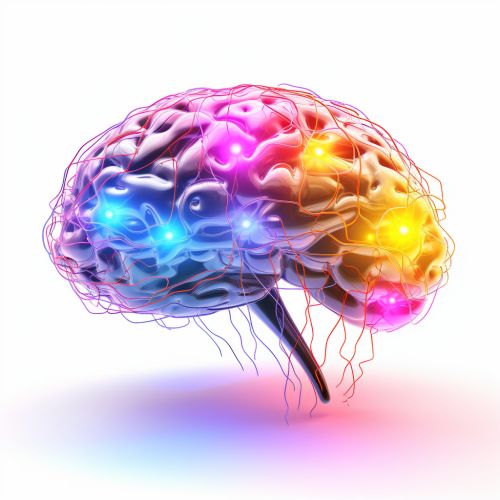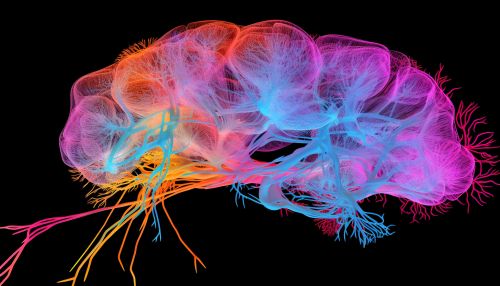Cognitive Mechanisms of Cognitive and Spatial Abilities
Introduction
Cognitive mechanisms refer to the processes that the brain uses to learn, remember, and process information. These mechanisms are integral to our cognitive and spatial abilities, which enable us to understand and navigate the world around us. Cognitive abilities include skills such as attention, memory, and problem-solving, while spatial abilities involve the understanding and manipulation of shapes and spaces.


Cognitive Abilities
Cognitive abilities are mental capabilities that allow us to acquire and process information. They encompass a range of skills, including perception, attention, memory, language, problem-solving, and decision-making. These abilities are fundamental to our everyday functioning, enabling us to perform tasks, solve problems, and make sense of the world around us.
Perception
Perception is the process by which we interpret sensory information to understand our environment. This involves the brain receiving input from our sensory organs and transforming this input into meaningful information. Perception is a complex process that involves several cognitive mechanisms, including attention and memory. For example, our attention may be drawn to a particular stimulus, which is then processed and stored in our memory for future reference read more.
Attention
Attention is a cognitive mechanism that allows us to focus on specific stimuli while ignoring others. It is a selective process that enables us to concentrate on relevant information and disregard irrelevant information. Attention is crucial for perception, memory, and problem-solving, as it determines which information is processed and remembered read more.
Memory
Memory is the cognitive mechanism that allows us to store, retain, and retrieve information. It is a fundamental component of cognitive abilities, as it enables us to learn from past experiences and apply this knowledge to future situations. Memory can be divided into several types, including short-term memory, long-term memory, and working memory, each of which involves different cognitive processes read more.
Language
Language is a cognitive ability that allows us to communicate and express our thoughts and feelings. It involves several cognitive mechanisms, including perception, attention, memory, and problem-solving. For example, when we listen to someone speak, we must perceive the sounds, pay attention to the words, remember the meaning of these words, and use this information to understand the message read more.
Problem-Solving
Problem-solving is a cognitive ability that involves identifying problems and finding solutions. It requires several cognitive mechanisms, including perception, attention, memory, and decision-making. For example, when faced with a problem, we must perceive the situation, pay attention to the relevant information, remember past experiences, and make decisions based on this information read more.
Decision-Making
Decision-making is a cognitive ability that involves choosing between different options or courses of action. It requires several cognitive mechanisms, including perception, attention, memory, problem-solving, and risk assessment. For example, when making a decision, we must perceive the options, pay attention to the relevant information, remember past experiences, solve any problems, and assess the risks associated with each option read more.
Spatial Abilities
Spatial abilities are cognitive skills that involve the understanding and manipulation of shapes and spaces. They are crucial for a variety of tasks, such as reading maps, understanding diagrams, and navigating the environment. Spatial abilities can be divided into several types, including spatial perception, spatial visualization, and mental rotation.


Spatial Perception
Spatial perception is the ability to understand the relationship between objects in space. It involves perceiving the position and orientation of objects relative to each other and to oneself. Spatial perception is crucial for tasks such as navigating the environment and understanding maps read more.
Spatial Visualization
Spatial visualization is the ability to mentally manipulate 2D and 3D shapes. It involves visualizing shapes in one's mind and transforming these shapes by rotating, translating, or scaling them. Spatial visualization is important for tasks such as understanding diagrams and solving spatial problems read more.
Mental Rotation
Mental rotation is a type of spatial visualization that involves rotating 2D or 3D objects in one's mind. It is a complex cognitive task that requires several cognitive mechanisms, including perception, attention, and memory. Mental rotation is used in tasks such as reading maps, understanding diagrams, and solving spatial problems read more.
Relationship Between Cognitive and Spatial Abilities
Cognitive and spatial abilities are closely related, as they both involve the processing and manipulation of information. Cognitive abilities such as attention, memory, and problem-solving are fundamental to spatial abilities, as they enable us to perceive, remember, and manipulate spatial information. Conversely, spatial abilities can also enhance cognitive abilities, as they involve complex cognitive tasks that can improve attention, memory, and problem-solving skills.
Conclusion
Cognitive mechanisms are fundamental to our cognitive and spatial abilities, enabling us to understand and navigate the world around us. They involve a range of mental processes, including perception, attention, memory, and problem-solving, which are crucial for tasks such as reading maps, understanding diagrams, and solving problems. Understanding these mechanisms can provide insights into how we learn, remember, and process information, and can inform interventions to improve cognitive and spatial abilities.
